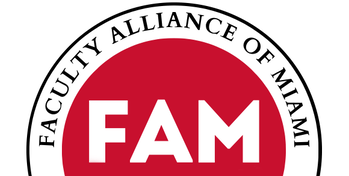AAUP defines shared governance as meaningful faculty participation in institutional governance. AAUP’s guidelines for shared governance were jointly formulated with the American Council on Education and the Association of Governing Boards of Universities and Colleges.
From AAUP’s one-page info sheet on shared governance:
The role of the faculty is to have primary responsibility for such fundamental areas as curriculum, subject matter and methods of instruction, research, faculty status, and those aspects of student life which relate to the educational process. The responsibility for faculty status includes appointments, reappointments, decisions not to reappoint, promotions, the granting of tenure, and dismissal.
Why should the faculty voice be authoritative in the academic area?
• Faculty are distinctly qualified to exercise decision-making authority in their areas of expertise.
• Faculty are distinctly qualified to exercise decision-making authority in their areas of expertise.
• Scholars in a particular field or activity “have the chief competence for judging the work of their colleagues.”
Learn more about shared governance and AAUP’s work across the country to promote and protect it.
View Save Ohio Higher Ed’s slides on Shared Governance for the Current Crisis or national AAUP’s slide presentation Shared Governance in Perilous Times. Both clarify the appropriate role of faculty in participating in university decision making on curriculum, budgets, etc.
Review Miami AAUP’s thorough working paper, “Shared Governance at Miami University: Some Observations and Modest Proposals” (2018) and our summary of shared governance issues that Miami should address (2019).
- Resources for Miami University Senators
- Robert’s Rules Quick Reference
